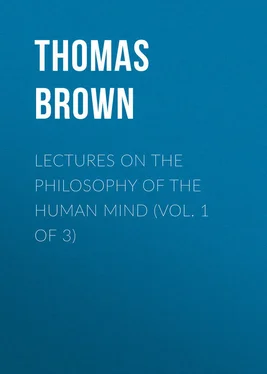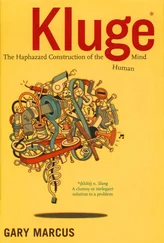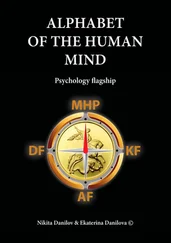Thomas Brown - Lectures on the Philosophy of the Human Mind (Vol. 1 of 3)
Здесь есть возможность читать онлайн «Thomas Brown - Lectures on the Philosophy of the Human Mind (Vol. 1 of 3)» — ознакомительный отрывок электронной книги совершенно бесплатно, а после прочтения отрывка купить полную версию. В некоторых случаях можно слушать аудио, скачать через торрент в формате fb2 и присутствует краткое содержание. Жанр: foreign_antique, foreign_prose, на английском языке. Описание произведения, (предисловие) а так же отзывы посетителей доступны на портале библиотеки ЛибКат.
- Название:Lectures on the Philosophy of the Human Mind (Vol. 1 of 3)
- Автор:
- Жанр:
- Год:неизвестен
- ISBN:нет данных
- Рейтинг книги:5 / 5. Голосов: 1
-
Избранное:Добавить в избранное
- Отзывы:
-
Ваша оценка:
- 100
- 1
- 2
- 3
- 4
- 5
Lectures on the Philosophy of the Human Mind (Vol. 1 of 3): краткое содержание, описание и аннотация
Предлагаем к чтению аннотацию, описание, краткое содержание или предисловие (зависит от того, что написал сам автор книги «Lectures on the Philosophy of the Human Mind (Vol. 1 of 3)»). Если вы не нашли необходимую информацию о книге — напишите в комментариях, мы постараемся отыскать её.
Lectures on the Philosophy of the Human Mind (Vol. 1 of 3) — читать онлайн ознакомительный отрывок
Ниже представлен текст книги, разбитый по страницам. Система сохранения места последней прочитанной страницы, позволяет с удобством читать онлайн бесплатно книгу «Lectures on the Philosophy of the Human Mind (Vol. 1 of 3)», без необходимости каждый раз заново искать на чём Вы остановились. Поставьте закладку, и сможете в любой момент перейти на страницу, на которой закончили чтение.
Интервал:
Закладка:
It is, indeed, scarcely possible to imagine a more striking proof of the danger of extending, with too great certainty, a general law, than this instant conversion of attraction into repulsion , without the addition of any new bodies, without any change in the nature of the bodies themselves, and a change of their circumstances so very slight, as to be absolutely indistinguishable, but for the opposite motions that result from it, with a change of their circumstances. After observing the gravity of bodies, at all heights of our atmosphere, and extending our survey through the wide spaces of our solar system, – computing the tendency of the planets to the sun, and their disturbing forces, as they operate on each other, – and finding the resulting motions exactly to correspond with those which we had predicted by theory; – in these circumstances, after an examination so extensive, if we had affirmed, as an universal law of matter, that, at all distances, bodies tend toward each other, we should have considered the wideness of the induction, as justifying the affirmation; and yet, even in this case, we find, on the surface of our earth, in the mutual shocks of bodies, and in their very rest, sufficient evidence, that, in making the universal affirmation, we should have reasoned falsely. There is no theory, then, which, if applied to the explanation of new phenomena, is not, to a certain degree, conjectural; because it must proceed on the supposition, that what was true in certain circumstances, is true also in circumstances that have not been observed. It admits of certainty, only when it is applied to the very substances observed, – in the very circumstances observed, – in which case, it may be strictly said to be nothing more than the application of a general term to the particulars, which we have before agreed to comprehend in it. Whatever is more than this is truly hypothetical, – the difference being, that we commonly give the name of hypothesis to cases, in which we suppose the intervention of some substance, of the existence of which, as present in the phenomenon, we have no direct proof, or of some additional quality of a substance before unobserved, – and the name of theory to cases, which do not suppose the existence of any substance, that is not actually observed, or of any quality that has not been actually observed, but merely the continuance, in certain new circumstances, of tendencies observed in other circumstances. Thus, if a planet were discovered revolving in the space which separates the orbits of any two planets at present known, were we to suppose of matter, in this new situation, that it would be subject to the same exact law of gravitation, to which the other planets were known to be subject, and to predict its place in the heavens, at any time, according to this law, we should be said to form a theory of its motions; as we should not take for granted, any new quality of a substance, or the existence of any substance, which was not evidently present, but only of tendencies observed before in other circumstances, – analogous indeed, but not absolutely the same. We should be said to form an hypothesis on the subject, if, making the same prediction, as to its motions, and place in the heavens, at any given time, we were to ascribe the centripetal tendency, which confines it within its orbit, to the impulse of ether, or to any other mechanical cause. The terms, however, I must confess, though the distinction which I have now stated would be, in all cases, a very convenient one, are used very loosely, not in conversation merely, but in the writings of philosophers, – an hypothesis often meaning nothing more than a theory, to which we have not given our assent, – and a theory, an hypothesis which we have adopted, or still more, one which we have formed ourselves.
A theory , then, even in that best sense, to which I wish it accurately confined, as often as it ventures a single hair-breadth beyond the line of former observation, may be wrong, as an hypothesis may be wrong. But, in a theory, in this sense of it, there are both less risk of error, and less extensive evil from error, than in an hypothesis. There is less risk of error, because we speak only of the properties of bodies, that must be allowed actually to exist; and the evil of error is, for the same reason, less extensive, since it must be confined to this single point; whereas, if we were to imagine falsely the presence of some third substance, our supposition might involve as many errors, as that substance has qualities; since we should be led to suppose, and expect, some or all of the other consequences, which usually attend it, when really present.
The practical conclusion to be drawn from all this very long discussion, is, that we should use hypotheses to suggest and direct inquiry, not to terminate or supersede it; and that, in theorizing, – as the chance of error, in the application of a general law, diminishes, in proportion to the number of analogous cases, in which it is observed to hold, – we should not form any general proposition, till after as wide an induction, as it is possible for us to make; and, in the subsequent application of it to particulars, should never content ourselves, in any new circumstances, with the mere probability, however high, which this application of it affords; while it is possible for us to verify, or disprove it, by actual experiment.
LECTURE IX
RECAPITULATION OF THE FOUR PRECEDING LECTURES; AND APPLICATION OF THE LAWS OF PHYSICAL INQUIRY TO THE STUDY OF MIND, COMMENCED
For several Lectures, Gentlemen, we have been employed in considering the objects that are to be had in view, in Physical Inquiry in general, a clear conception of which seems to me as essential to the Philosophy of Mind, as to the Philosophy of Matter. I should now proceed to apply these general remarks more particularly to our own science; but, before doing this, it may be of advantage to retrace slightly our steps in the progress already made.
All inquiry, with respect to the various substances in nature, we have seen, must regard them as they exist in space , or as they exist in time , – the inquiry, in the one case, being into their composition; the inquiry, in the other case, into the changes which they exhibit. The first of these views we found to be very simple, having, for its object, only the discovery of what is actually before us at the moment, – which, therefore, if we had been endowed with senses of greater delicacy and acuteness, we might have known, without any inquiry whatever. It is the investigation of the elements, or separate bodies, that exist together, in the substances which we considered, or rather that constitute the substances which we considered, by occupying the space which we assign to the one imaginary aggregate, and are regarded by us as one substance, – not from any absolute unity which they have in nature, since the elementary atoms, however continuous or near, have an existence as truly separate and independent, as if they had been created at the distance of worlds, – but from a unity, that is relative only to our incapacity of distinguishing them as separate. It is to the imperfection of our senses, then, that this first division of Physical Inquiry owes its origin; and its most complete results could enable us to discover only, what has been before our eyes from the moment of our birth.
The second division of inquiry, – that which relates to the successions of phenomena in time, – we found, however, to have a different origin; since the utmost perfection of our mere senses could show us only what is , at the moment of perception, not what has been , nor what will be ; and there is nothing in any qualities of bodies perceived by us, which, without experience, could enable us to predict the changes that are to occur in them. The foundation of all inquiry, with respect to phenomena as successive, we found to be that most important law, or original tendency, of our nature, in consequence of which we not merely perceive the changes exhibited to us at one particular moment, but from this perception, are led irresistibly to believe, that similar changes have constantly taken place, in all similar circumstances, and will constantly take place, as often as the future circumstances shall be exactly similar to the present. We hence consider events, not as casually antecedent and consequent, but as invariably antecedent and consequent, – or, in other words, as causes and effects; and we give the name of power to this permanent relation of the invariable antecedent to its invariable consequent. The powers of substances, then, concerning which so many vague, and confused, and mysterious notions prevail, are only another name for the substances themselves, in relation to other substances, – not any thing separate from them and intermediate, – as the form of a body, concerning which too, for many ages, notions as vague and mysterious prevailed, is not any thing different from the body, but is only the body itself, considered according to the relative position of its elements. Form is the relation of immediate proximity, which bodies bear to each other in space ; – power is the relation of immediate and uniform proximity, which events bear to each other in time ; and the relation, far from being different, as is commonly supposed, when applied to matter and to spirit, is precisely the same in kind, whether the events, of which we think, be material or immaterial. It is of invariable antecedence that we speak alike in both cases, and of invariable antecedence only. When we say, that a magnet has the power of attracting iron, we mean only, that a magnet cannot be brought near iron, without the instant motion of the iron towards it. When we say, in treating of mental influence, that man, in the ordinary circumstances of health, and when free from any foreign restraint, has the power of moving his hand, we mean only, that, in these circumstances, he cannot will to move his hand, without its consequent motion. When we speak of the omnipotence of the Supreme of Beings, – who is the fountain of all power, as he is the fountain of all existence, – we mean only, that the universe arose at his command, as its instant consequence, and that whatever he wills to exist or perish, exists, or is no more.
Читать дальшеИнтервал:
Закладка:
Похожие книги на «Lectures on the Philosophy of the Human Mind (Vol. 1 of 3)»
Представляем Вашему вниманию похожие книги на «Lectures on the Philosophy of the Human Mind (Vol. 1 of 3)» списком для выбора. Мы отобрали схожую по названию и смыслу литературу в надежде предоставить читателям больше вариантов отыскать новые, интересные, ещё непрочитанные произведения.
Обсуждение, отзывы о книге «Lectures on the Philosophy of the Human Mind (Vol. 1 of 3)» и просто собственные мнения читателей. Оставьте ваши комментарии, напишите, что Вы думаете о произведении, его смысле или главных героях. Укажите что конкретно понравилось, а что нет, и почему Вы так считаете.












![Anne Blunt - A Pilgrimage to Nejd, the Cradle of the Arab Race. Vol. 1 [of 2]](/books/749489/anne-blunt-a-pilgrimage-to-nejd-the-cradle-of-the-thumb.webp)